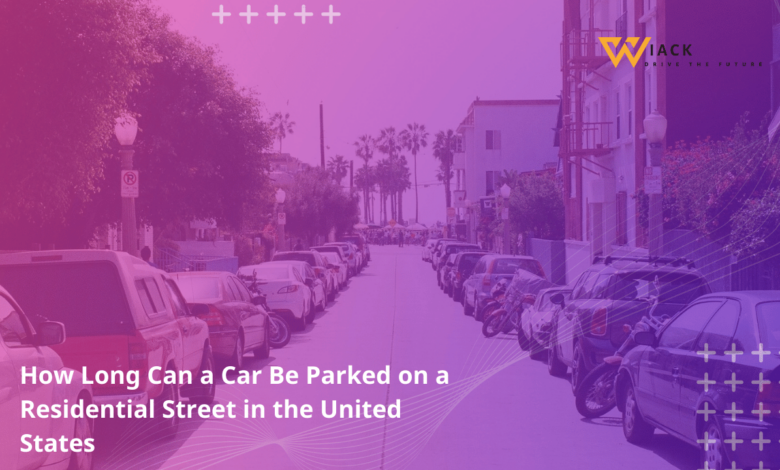How Long Can a Car Be Parked on a Residential Street in the United States

Parking your car on a residential street may seem like a simple task, but it’s crucial to understand the various regulations and time limits that govern this common practice. In the United States, parking laws can vary significantly from state to state and even between different cities and neighborhoods. Knowing how long you can legally leave your vehicle parked on a residential street can help you avoid costly fines, towing fees, and other potential consequences. In this article, we’ll explore the ins and outs of residential street parking, including general time limits, exceptions to the rules, and tips for responsible parking.
Understanding Residential Street Parking Regulations
Overview of Parking Laws in Different States
Parking regulations on residential streets are primarily determined by state and local laws. While some states have overarching guidelines, most of the specific rules are set by individual cities and towns. For example, in Texas, state law prohibits vehicles from being parked on a public street for more than 24 hours, but cities like Houston have their own ordinances that further restrict parking duration.
Importance of Local Ordinances
Local ordinances play a significant role in determining how long a car can be parked on a residential street. These laws are designed to ensure that streets remain accessible, safe, and well-organized for all residents. It’s essential to familiarize yourself with the specific regulations in your area, as they can vary greatly from one neighborhood to another.
General Time Limits for Parking
Urban vs. Suburban Parking Regulations
In general, parking time limits on residential streets are shorter in urban areas compared to suburban neighborhoods. This is due to the higher population density and limited available parking spaces in cities. Urban areas often have a 2-hour parking limit, while suburban neighborhoods may allow vehicles to be parked for up to 72 hours.
Standard 72-Hour Rule
Many cities and towns across the United States have a standard 72-hour rule, which means that vehicles cannot be parked on a residential street for more than 72 consecutive hours without being moved. This rule is in place to prevent vehicle abandonment and ensure that streets remain accessible for emergency vehicles, garbage trucks, and other essential services.
Exceptions to the Rules
Special Permits and Their Implications
Some cities offer special permits that allow residents to park their vehicles on the street for extended periods. These permits are typically available for a fee and may be subject to certain restrictions. For example, in the City of Marion, South Australia, residents can apply for a permit that exempts them from time limitations in areas where parking is restricted. However, it’s important to note that having a permit does not guarantee a parking space and may not allow you to park in no-stopping zones or other restricted areas.
Considerations for Residents vs. Non-Residents
Parking regulations often differ for residents and non-residents of a particular area. In many cases, residents are given priority when it comes to street parking, and may be allowed to park for longer durations or obtain special permits. Non-residents, on the other hand, are typically subject to stricter time limits and may be required to park in designated areas or use off-street parking options.
Consequences of Exceeding Parking Limits
Fines and Citations
One of the most common consequences of exceeding parking time limits on residential streets is receiving a fine or citation. The amount of these fines can vary significantly depending on the location and the specific violation. For example, in the City of Melbourne, Australia, parking fines range from $99 to $198 for the 2024-25 financial year. Failing to pay these fines can result in additional penalties and legal action.
Towing Policies and Procedures
In some cases, vehicles that are parked illegally on residential streets may be subject to towing. Towing policies and procedures vary by location, but generally, a vehicle can be towed if it is blocking access to a driveway or roadway, parked in a fire zone, or has received multiple previous notices for inappropriate parking. It’s crucial to be aware of the towing regulations in your area to avoid the inconvenience and expense of having your vehicle towed.
Factors Affecting Parking Duration
Vehicle Type and Size
The type and size of your vehicle can also impact how long you can park on a residential street. Some cities have specific regulations for oversized vehicles, such as RVs or commercial trucks, which may be prohibited from parking in residential areas altogether or have shorter time limits. Additionally, vehicles that are not properly registered or have expired tags may be subject to shorter parking durations or immediate towing.
Neighborhood Parking Availability
The availability of parking spaces in a particular neighborhood can also influence parking time limits. In areas with limited street parking, regulations may be stricter to ensure that all residents have access to parking. This is particularly common in dense urban areas or neighborhoods near popular destinations, such as beaches or entertainment districts.
Tips for Responsible Parking
Importance of Following Local Guidelines
To avoid fines, towing, and other consequences, it’s crucial to follow local parking guidelines. Take the time to research the specific regulations in your area, and pay attention to posted signs that indicate parking restrictions. If you’re unsure about the rules, contact your local parking authority or city government for clarification.
How to Avoid Fines and Towing
Here are some tips to help you avoid fines and towing when parking on a residential street:
- Always check for posted signs that indicate parking restrictions, time limits, and permit requirements.
- If you need to park for an extended period, consider applying for a residential parking permit if available.
- Be mindful of your vehicle’s size and type, and ensure that it complies with any specific regulations.
- Avoid parking in front of driveways, fire hydrants, or other restricted areas.
- If you receive a warning notice for inappropriate parking, move your vehicle as soon as possible to avoid further penalties.
Frequently Asked Questions
Common Misconceptions about Residential Parking
One common misconception about residential street parking is that having a permit allows you to park anywhere for an unlimited amount of time. However, even with a permit, you may still be subject to certain restrictions and time limits. Another misconception is that parking regulations only apply during certain hours or on weekdays. In reality, many parking restrictions are in effect 24/7, including weekends and holidays.
Impact of Parking Violations on Vehicle Owners
Parking violations can have a significant impact on vehicle owners. In addition to fines and towing fees, repeated violations can lead to the immobilization or impoundment of your vehicle. Furthermore, unpaid parking fines can negatively affect your credit score and may even result in legal action against you.
Takeaways
- Parking regulations on residential streets vary by state and local ordinances.
- General time limits range from 2 hours in urban areas to 72 hours in suburban neighborhoods.
- Special permits may allow for extended parking, but do not guarantee a space or exempt you from all restrictions.
- Fines for parking violations can be substantial, and repeated offenses may lead to towing or impoundment.
- Always research and follow local parking guidelines to avoid penalties.
- Be mindful of factors such as vehicle size, neighborhood availability, and posted signs when parking on residential streets.
By understanding the various regulations and best practices surrounding residential street parking, you can ensure that you’re parking responsibly and avoiding unnecessary fines and inconveniences. Remember to always check your local laws and ordinances, as they can vary significantly from one area to another. With a little research and careful attention to posted signs, you can confidently park your car on residential streets without fear of violations or penalties.
Get the latest car news, reviews, and prices at Wiack.com. Your one-stop destination for all things automotive.




